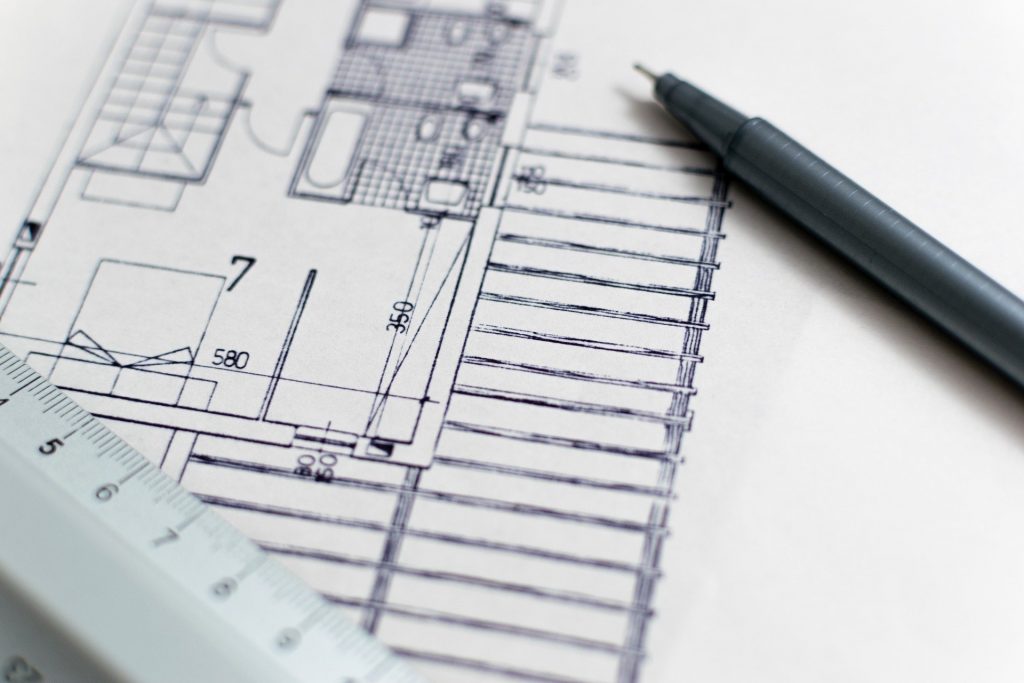THE CONSTRUCTION INDUSTRY SCHEME (CIS) VAT REVERSE CHARGE SCHEME
The CIS VAT domestic reverse charge measure will apply to supplies of construction work from 1 March 2021. The measure was due to commence in October 2019 but has been delayed due to the pandemic.
This new scheme has been brought in by HMRC to tackle fraud in the construction industry. The government is cracking down on ‘missing trader’ VAT fraud in the construction industry with this new reverse charge scheme. The rationale is that the Contractor such as a developer is far less likely to become a missing trader than a sub-contractor who can easily move on and set up under a different name. So this new scheme is an anti-tax fraud provision and works by shifting the liability from the sub-contractor to the contractor. It also shifts the risk of fraud from HMRC to the contractor. So if the contractor fails to apply the reverse charge and pays the VAT incorrectly to the sub-contractor, who then disappears, then the contractor is liable for the payment of VAT. This measure only applies to construction supplies and services made by a business to business and both are vat registered.
The reverse charge scheme applies when the following conditions are met.
- The sub-contractor and contractor are not connected.
- Sub-contractor and contractor are both VAT registered.
- Sub-contractor and Contractor are both CIS registered.
- The supply consists of construction services and materials.
- The contractor intends to make an ongoing supply of construction services to another party.
How does it work?
- Normally what happens is that VAT registered Construction Industry sub-contractors add VAT to their services and supplies and invoice the contractor. The contractor will pay the sub-contractor the invoice total including VAT. The sub-contractor will pay over the VAT to HMRC. The VAT charged by sub-contractor to contractor is reclaimed from HMRC on the Contractor’s own VAT return.
- In a reverse charge, the sub-contractor invoices the contractor at the net price without VAT. The contractor calculates the VAT liability and adds the amount that would have been paid to the sub-contractor to his own VAT return as if it were VAT on sales.
- The reverse charge scheme works exactly in the same way as in a normal VAT charge. The only difference is that the contractor accounts for both output VAT and input VAT. This will net off and no payment is made to HMRC.
- If the Contractor cannot reclaim the VAT (being partially or wholly exempt), the VAT that would have been paid to the sub-contractor is paid over to HMRC.
- If the correct reverse rules are followed, all three parties, the contractor, sub-contractor and HMRC, are left in the correct financial position. The potential for fraud by the sub-contractor is removed.
The CIS reverse charge does not apply to any of the following:
- Sub-Contractors working for non-business customers such as the public.
- Sub-contractors working for business customers who are not connected with the construction industry such as shops, local council etc….
- The reverse charge scheme does not apply where the sub-contractor and contractor are connected such as companies within the same group.
- Non VAT registered sub-contractors.
- VAT registered customers who are not intending to make further on-going supplies of construction. This would apply to businesses such as shops.
Who will be affected?
Sub-contractors will be most affected. When they work for a Contractor they will not charge VAT on their services. The reverse charge will apply to all their sales invoices. However, when working for the general public or non VAT registered businesses the reverse charge rules will not apply. Sub-contractors must understand when the reverse VAT rules apply.
If a Contractor is charged VAT incorrectly when the reverse charge should have applied, the contractor’s VAT liability remains. HMRC will have no liability to reimburse the VAT incorrectly charged.
If you require further information please contact us. As Accountants, Tax Compute will always advise what is best for the client. Give us a call and we can offer you a free consultation and advice on what is best.
Contact for more information
Jon GUNNING
Cheltenham Office
jon@taxcompute.co.uk
Tel 01242 241998

